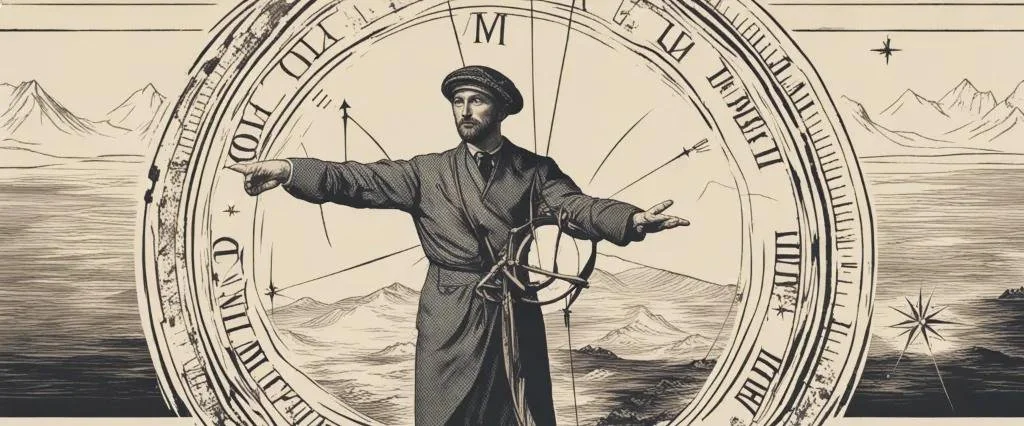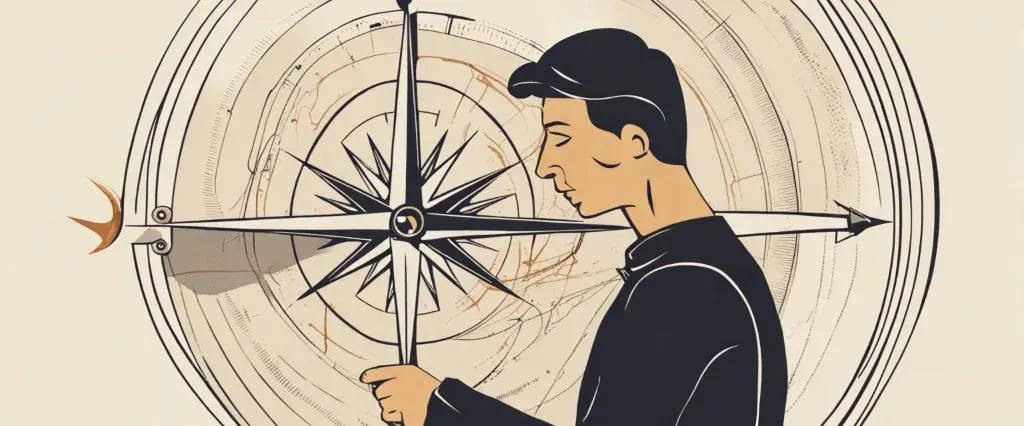Navigating the Seas: Summary of The Book Longitude
Chapter 1 What's The book Longitude by Dava Sobel
"The book Longitude" by Dava Sobel is a historical non-fiction book that tells the story of the development of the marine chronometer by John Harrison. The chronometer was a breakthrough invention that revolutionized navigation at sea by accurately determining a ship's longitude. Sobel's book explores the challenges and obstacles faced by Harrison in creating this device, as well as the impact it had on maritime exploration and trade. The book is well-researched and beautifully written, making it a captivating read for history and science enthusiasts alike.
Chapter 2 The book Longitude by Dava Sobel Summary
Longitude by Dava Sobel tells the fascinating story of John Harrison, an English clockmaker who revolutionized navigation by solving the problem of determining a ship's longitude at sea. In the 18th century, sailors relied on accurate timekeeping to calculate longitude, but traditional methods were unreliable and inaccurate.
Harrison dedicated his life to creating a timekeeping device that could withstand the rigors of sea travel and provide precise measurements. He eventually invented the marine chronometer, a portable clock that could keep accurate time despite the rocking and rolling of a ship at sea.
Harrison faced many challenges and skeptics along the way, but he persevered and eventually won the prestigious Longitude Prize for his contributions to navigation. His invention transformed maritime travel and made it safer and more efficient.
Overall, Longitude is a captivating and well-researched book that highlights the importance of innovation and perseverance in solving complex problems. It celebrates the ingenuity of John Harrison and his groundbreaking achievements in the field of navigation.
Chapter 3 The book Longitude Author
Dava Sobel is an American writer of popular science books. She released the book "Longitude: The True Story of a Lone Genius Who Solved the Greatest Scientific Problem of His Time" in 1995. The book tells the story of John Harrison, a self-taught clockmaker who invented the marine chronometer, a device that solved the problem of calculating longitude at sea.
In addition to "Longitude," Dava Sobel has written several other books including "Galileo's Daughter: A Historical Memoir of Science, Faith, and Love" (1999), "The Planets" (2005), and "A More Perfect Heaven: How Copernicus Revolutionized the Cosmos" (2011).
Of these books, "Galileo's Daughter" is considered one of Sobel's best works in terms of editions. It won the 1999 Los Angeles Times Book Prize for Science and Technology and was a finalist for the Pulitzer Prize for Biography or Autobiography. "Galileo's Daughter" has been widely praised for its engaging storytelling and meticulous research, making it a standout in Sobel's body of work.
Chapter 4 The book Longitude Meaning & Theme
The book Longitude Meaning
Longitude by Dava Sobel is a book that tells the story of John Harrison, an English clockmaker who invented the marine chronometer in the 18th century. This invention revolutionized navigation at sea by accurately determining a ship's position in terms of longitude. The book chronicles Harrison's struggles to have his invention recognized and accepted by the scientific establishment, as well as the political and personal obstacles he faced.
Overall, the book explores the themes of innovation, perseverance, and the importance of accurate measurement in scientific progress. It also highlights the impact of Harrison's invention on the search for a solution to the "longitude problem," which had challenged sailors and explorers for centuries. In essence, Longitude is a captivating historical narrative that sheds light on the intersection of science, technology, and human ingenuity.
The book Longitude Theme
The main theme of "Longitude" by Dava Sobel is the importance of accurate measurement and navigation for the advancement of society. The book tells the story of John Harrison, a self-educated clockmaker who invented a chronometer that could accurately measure longitude at sea. This invention revolutionized navigation and helped sailors find their exact location on the open ocean, leading to safer and more efficient voyages.
Through Harrison's story, Sobel highlights the significance of precise timekeeping and the challenges faced by scientists and inventors in developing accurate navigation methods. The theme of progress and innovation is central to the book, as it underscores the role of technology in shaping human history and improving the quality of life for all individuals.
Overall, "Longitude" emphasizes the importance of perseverance, ingenuity, and the pursuit of knowledge in overcoming obstacles and achieving ground-breaking discoveries. It celebrates the power of human creativity and the impact of scientific advancements on society as a whole.
Chapter 5 Quotes of The book Longitude
The book Longitude quotes as follows:
1. "Time is the essence of navigation, just as it is the essence of life."
2. “The loneliest places are often the most exciting because you never know what might happen next.”
3. "Finding the longitude was the greatest scientific challenge of the era."
4. “The precision of a clock is not enough. True timekeeping requires an understanding of the natural forces that govern the motion of the heavens.”
5. "Longitude may be tolerable, Latitude may easily be found; but what could answer their purpose without clockwork and Springwheels?"
6. “The key to longitude lay in the stars, not the earth beneath our feet.”
7. "Time and space are the two essential aspects of navigation."
8. “Give me a good clock, and I will find my way around the world.”
9. "The solution to the longitude problem would revolutionize navigation and change the course of history."
10. “With a clock and the stars as your guide, you can conquer the vastness of the oceans.”
Chapter 6 Similar Books Like The book Longitude
1. "Astrophysics for People in a Hurry" by Neil deGrasse Tyson - A fascinating and accessible exploration of the universe and our place in it.
2. "Sapiens: A Brief History of Humankind" by Yuval Noah Harari - A thought-provoking look at the history of humanity, from the evolution of Homo sapiens to the present day.
3. "The Immortal Life of Henrietta Lacks" by Rebecca Skloot - A powerful and moving true story that explores the impact of one woman's immortal cells on medical research.
4. "The Sixth Extinction: An Unnatural History" by Elizabeth Kolbert - A sobering examination of the ongoing mass extinction of species caused by human activity.
5. "The Glass Universe: How the Ladies of the Harvard Observatory Took the Measure of the Stars" by Dava Sobel - A compelling and inspiring story of the women who made groundbreaking discoveries in the field of astronomy.
Book https://www.bookey.app/book/longitude
Author https://www.bookey.app/quote-author/dava-sobel
Quotes https://www.bookey.app/quote-book/longitude
YouTube https://www.youtube.com/watch?v=IX6U_Qm60Nc
Amazom https://www.amazon.com/Longitude-Genius-Greatest-Scientific-Problem/dp/080271529X
Goodreads https://www.goodreads.com/book/show/4806.Longitude


